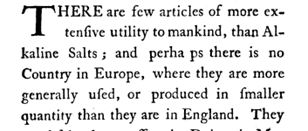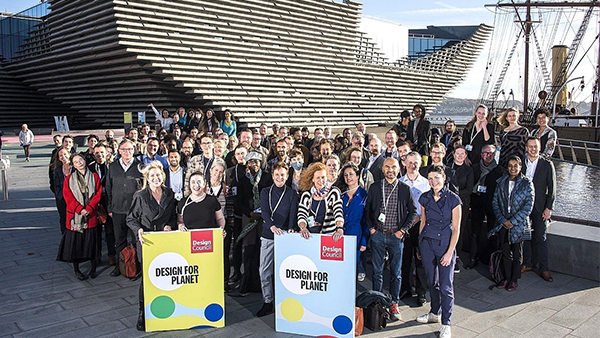Regardless of the consequences of the EU referendum, the need for the RSA to become more global in its outlook has never been more urgent.
Find out more about RSA Global
From the inception of its original charter, the RSA has always sought to make change happen beyond the UK. Unsurprisingly, our earliest interventions carried more than a whiff of colonialism. Some of our original Premiums supported new agricultural developments and greater trading in ‘the Colonies’. One Fellow led efforts to ‘support the propagation of mangoes in St Vincent’. Others led the development of new world wines. In the 19th Century we established ‘Indian’ and ‘colonial’ sections. In the 20th Century, we established an R B Bennett Memorial Prize ‘for the most outstanding contribution from the Dominion, India and the Colonies to the promotion of the arts, agriculture, industries and commerce of the Overseas Empire during each intervening period.
Although my scan of our amazing archives has been cursory so far, it does appear that the RSA’s relationship with our European neighbours has historically been less strong than with other parts of the world. When the RSA was founded in 1754, Europe was firmly established as a geographical and, to some extent, philosophical concept (as the quote below from RSA’s 1778 Transactions Journal attests).

However, ideas of political or economic unity, whether through force or consensus, were not part of the debate. Many countries in Europe, for instance Italy or Germany, were yet to unite themselves, let alone with others. As nation states became the dominant political force, some links were established (for instance, the Patriotic Society of Hamburg was partly inspired by the RSA, as were new institutions in Russia and Malta).
More recently, like so many British institutions, industries, and intellectuals, the RSA appears to have had a supportive but complacent relationship with Europe. A group set up in the 1950s to “increase European membership of the Society and promote closer association with similar societies” was disbanded in 1972. Since then, very few if any RSA projects and Fellows’ efforts have focused at change in the pan-European context, or within European countries.
This general complacency may be one cause of the EU-antipathy that the referendum revealed. Amidst all the blame-throwing going on across the Remain spectrum, I’ll lob in one other: Tony Blair, or at least Blairism. Overall, the biggest problem with 13 years of New Labour may have been a failure to match a technical tilt towards more progressive policies with a societal tilt towards more progressive values. Beyond some general liberalism (including the important change in attitudes towards homosexuality), as a society we became no more tolerant, compassionate, or concerned about inequality. This reveals itself in attitudes to Europe. Although Blair led Europe towards a successful intervention in Kosovo, and made the occasional pro-EU speech (whilst challenging the EU to reform itself), his quasi-unilateral actions in Iraq were possibly even more of a British rejection of the EU than Brexit itself. Although voters had many reasons to tick that ‘leave’ box, the result partly revealed a rejection of progressive European values.
Throughout its history the RSA has always played a counter-cultural role, going against orthodoxies to create new Zeitgeists. A 52% majority for Brexit is hardly the manifestation of a dominant culture, and charity law requires the RSA to remain neutral throughout the debate. However, whilst we can do nothing to affect the ultimate outcome of the referendum, we believe that the RSA has a role to play in championing and modelling a far more internationalist approach to change, and demonstrating that a very British institution will, despite or because of the inward looking nature of most of our politicians and much of our electorate, seek to become even more globally connected. Do this, and we can play a part in both shaping Britain’s future relationship with Europe, and in contributing to wider global movements.
250 years ago, the RSA was established in the UK partly to build civil society, support emerging forms of democracy, and challenge elitist approaches to social change. Whilst these issues are still more than salient in the UK, the RSA’s mission, values, and models of change may have particular resonance and adaptability for countries at different points in their trajectories as economies, democracies, and civil societies. In partnership with organisations already embedded in local contexts, we could play a proactive role in animating the stifled and often shrinking spaces between government, civil society and corporations.
There are a number of ways we can become more global in our approach, relationships and content. Our fantastic group of over thirty Connectors are already working wonders in their countries to grow and network Fellows outside the UK. Our new International Development Network, initiated by Adam Boxer FRSA, is holding its first event on 14 July. Both our Inclusive Growth Commission and our Citizens’ Economic Council are constantly looking beyond our borders for inspiration. And building on our reports on International Schools and on school systems and innovation, our new project with ECIS will focus on how Athens can develop an ecosystem that can transform outcomes for migrant and refugee children. Read our new global partnerships brochure to find out more.
Building on our existing organisations in the USA and Australasia, we’re currently scoping options to support the creation of a family of five new RSA Affiliate organisations in the next five years – ideally through partnerships with existing organisations in specific countries. We believe that our complete organisational model – an active group of Fellows who share our values and make change happen in their contexts; a public space for fellows to meet and other private and public events to take place; and a research and innovation programme which has social and political impact– has the potential to contribute to the flourishing of civil society in specific locations, and to empower individuals to lead full and creative lives that contribute to social change in these locations. Our hypothesis is that our unique combination of different approaches to change – described by Matthew Taylor as ‘emergent impact’ – can be adapted to help solve seemingly intractable problems in very different contexts. This goes beyond any notion of ‘soft power’ to a new form of iterative influence – maybe we could call it ‘emergent power’, and destroys any post-colonial notion of ‘punching above our weight’, captured so powerfully in Le Carre’s ‘Night Manager’.
What might this mean for the RSA’s future relationship with Europe as a whole, or individual countries? Regardless of whether our departure from the EU really happens, UK-based civil society organisations such as ours have a moral responsibility to reach out to our European partners and create new forms of cross – European civic dialogue. The roundtable I participated in recently, with leaders from over thirty Council of Europe nations, can hopefully provide a foundation to build on. At the roundtable, a Russian delegate taught me the phrase ‘to leave like an Englishman’, which means leaving without saying goodbye. I’m hoping that the RSA can help us do the opposite. To quote that famous Europhile, Del Boy from Only Fools and Horses, ‘not goodbye, but bonjour’.
The Security Imperative, The Council of Europe’s excellent recent report, needs to be accompanied by a new ‘civic imperative’ – to get different people, especially those who feel most marginalised by the forces of globalisation, to talk in different ways about the future of the continent and their lives within it. My last blog suggested that we needed to reclaim scepticism from the Eurosceptics. Perhaps it’s time to reclaim populism from the populists.
Related articles
-
A design revolution for the climate emergency
Joanna Choukeir
Joanna Choukeir on Design for Planet, the global gathering of designers during COP26, and the changes design must make.
-
US elections: the whole world is watching
Adanna Shallowe
The Caribbean’s experience shows how American policy affects us all.
-
The broader purpose of the environmental movement
Hila Chenzbraun Philipa Duthie
How can environmental movements tackle the climate crisis and social and racial injustice?




Join the discussion
Comments
Please login to post a comment or reply
Don't have an account? Click here to register.
Agreed but how do we include the working class i in this. Otherwise we continue to be the split soceity we are with the middle class being European whilst the poor see it as a threat.
The divisions now apparent at home are those between people who have coped or even thrived under Globalism and those who have not; amongst the latter class the old, the poor, the disadvantaged, rust-belt casualties, fishermen, those with low tertiary educational qualifcations, those from the villages and countryside, and those who own little except a sense of national identity. These were the 52%. The destructive alliance between the global corporates and EU institutions has served to drive down wages, lower skills and end sustainable and inclusive employment. Globally, we still have $1.5 quadrillion of derivatives, $500 trillion even when 'collapsed' downwards. Far more than the entire total of the real world economies combined. These Ponzi schemes have succeeded in bringing income levels across the world to above $1 a day - but at the price of massive disruption to settled societies.
So although I think you are mistaken in your analysis and I disagree that 'More Europe' is the answer, we are absolutely united in the mission of the RSA in the areas of dialogue, growth, skills and networking. And with the very recent death of Alvin Tofler, who inspired me in the late 1970s, I recall a quote "The illiterate of the 21st Century are not those who cannot read and write but those who cannot learn, unlearn and relearn."
This is the challenge. As the hurricane of globalisation tears through anchors of identity, belonging, community and traditional allegiances, leaving large parts of populations adrift, the ability to learn and adapt can mitigate the most negative effects of change. And this is where the RSA can play a crtically important role. Internationally, the winners from globalisation - the global corporates, the political amd media class, educated metropolitan professionals, those employed from public taxes, university managers, those that serve big business, the successful cultural and creative sector, generally from cities, well educated and above all adaptable - the 48% - need to be united with the losers from globalistion in mitigating the divisions, healing the split, enabling skills, pay and rewards and sustainable employment for all.
In other words, the RSA's global imperative must be to mitigate the negative effects of globalisation. We can't stop it, we can't reverse it, any more than can we can undo the lunatic financial manipulation that has corrupted our economies. But in recognising that ALL people across the world have potential, have worth, and have a contribution to make we can at least help to positively direct any popular backlash against globalisation.
Agreed but let's unite with the 48 per cent across Europe.